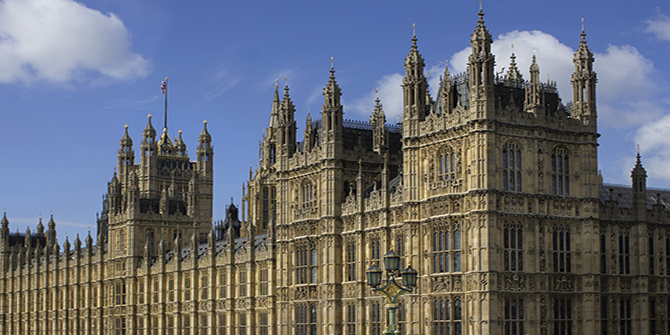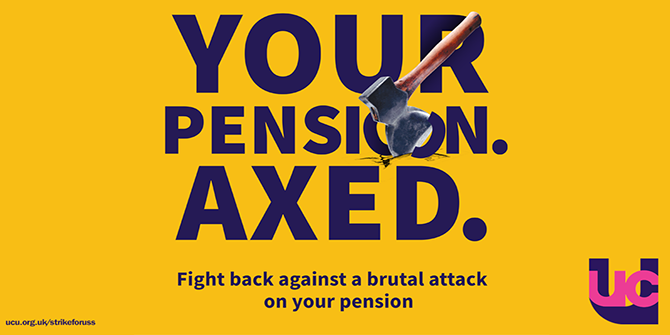 Do MPs vote to express constituents’ interests, even if such representation overrides their own personal preferences? Christopher D. Raymond explains why this may be the case and what implications it could have in trying to understand voting behaviour in divisive policy topics, like Brexit.
Do MPs vote to express constituents’ interests, even if such representation overrides their own personal preferences? Christopher D. Raymond explains why this may be the case and what implications it could have in trying to understand voting behaviour in divisive policy topics, like Brexit.
When studying legislative voting behaviour, most literature aims to examine how MPs’ personal views influence how they vote. But because most studies lack direct measures of MPs’ preferences, it is unclear whether their personal preferences are indeed dispositive in deciding how to vote, or whether other factors are in play.
While most past research finds only limited—if any—evidence that MPs vote to represent their constituents’ interests, there are reasons to doubt this. MPs representing their constituents’ preferences in Parliament may be able to secure ‘personal votes’ over and above the vote shares of their parties, and thus increase their chances of re-election. Because today’s MPs view politics as a career, they may vote in ways that represent their constituents’ preferences (sometimes to the extent of their own preferences) in order to develop personal votes.
In my recent research in Parliamentary Affairs, I examined a series of free votes, which allowed MPs to express their personal or constituents’ preferences as they voted. These free votes dealt with proposals to reform the House of Lords (electing all or a proportion of the House). I matched MPs’ voting behaviour to a survey of MPs’ preferences regarding the issue.
The results provided very little evidence that MPs’ preferences increased the likelihood of supporting measures to elect the House of Lords. Instead, the results suggested that MPs voted more to express the interests of their constituents. For instance, MPs from constituencies with more Liberal Democrat supporters were more likely to vote for an elected House of Lords. In line with the fact that Liberal Democrats and their supporters have long argued for an elected second chamber, this finding suggests some MPs facing tough re-election races against Liberal Democrat opponents may have used their votes on these divisions to appeal to Liberal Democrat voters.
The results also showed that MPs’ support for an elected House of Lords often depended on the percentage of Conservative voters in one’s constituency. For many, higher percentages of Conservative voters increased their chances of opposing an elected House of Lords—in line with traditional Conservatives voters’ preferences. The opposite relationship was found among Labour MPs.
In addition to finding that Labour MPs’ party affiliations continued to influence their behaviour after controlling for their personal and constituents’ preferences—in line with other recent research—Labour MPs from constituencies with more Conservative voters were significantly more likely to support an elected House of Lords. Facing strong challenges from Conservative candidates, some Labour MPs needed to emphasise to party supporters their personal commitment to the party’s manifesto pledges to reform the House of Lords to offset the damage done to their personal chances of re-election by their party’s failure to deliver on the promise to create an elected second chamber.
 Image credit: Pixabay/Public Domain
Image credit: Pixabay/Public Domain
The findings have important implications for our understanding of politics at Westminster. Most broadly, these findings suggest caution when interpreting the voting behaviour of MPs. While most research has assumed that MPs’ voting behaviour reflects, primarily, their personal preferences, my recent work suggests that this may not always be the case. Instead, these findings suggest that MPs concerned about their political careers may at times be more concerned with their constituents’ interests rather than their own personal preferences when they enter the division lobbies. If MPs voted to express their constituents’ interests over their own on an issue like House of Lords reform, then one could expect them to express their constituents’ interests on more politically-charged issues. If the issues at stake were sufficiently important to MPs’ careers, MPs could conceivably vote to express their constituents’ interests in defiance of the party whip.
These findings have obvious implications for unfolding events regarding the UK’s future relationship with the European Union. On division after division, the Labour party continues to exhibit difficulty in maintaining party cohesion on issues dealing with Brexit and the UK’s negotiations with EU leaders. Many of the Labour MPs who have defied the whip have done so on bills or amendments demonstrating their pro-European credentials; many of these defecting MPs represent constituencies with many voters who supported remaining in the European Union in the 2016 referendum. Reflecting the fact that many Labour constituencies voted for Brexit, most Labour MPs (most of whom campaigned to remain in the European Union) have not voted against Brexit.
My research suggests we can expect continued division within the Labour Party on votes dealing with Brexit. Because Labour drew the support of both pro-remain and pro-Brexit voters in the 2017 election, we can expect that the party will be divided on future Brexit-related divisions between those MPs elected in constituencies that voted to remain in the EU and those representing constituencies that voted to leave. While there is a possibility of similar backbench rebellions among Conservatives—with MPs like Anna Soubry and Ken Clarke defying the Conservative whip to represent their remain-leaning constituencies—the fact that most constituencies represented by Conservative MPs voted to leave suggests those concerned with re-election may continue to support the government’s position on Brexit, even if they (along with the majority of Conservative MPs) supported remaining in the EU.
________
Note: the above draws on the author’s published work in Parliamentary Affairs.
 Christopher D. Raymond is Lecturer in Politics at Queen’s University Belfast.
Christopher D. Raymond is Lecturer in Politics at Queen’s University Belfast.








Our MP, Eleanor Lang, is deputy speaker and so does not vote. How is she representing us in parliament? Seems she’s just there to serve her own interests
It looks to me nothing has changed, many thousands have died in the name of democracy, yet these people think they can ignore the wishes of the electoet it was never a political issue, merely the wishes of the electoet
MP: Anna Soubry (Conservative), Broxtowe
Leave vote: 52.5%
She voted to trigger Article 50.
MP Ken Clarke (Conservative), Rushcliffe
Remain: 40,522
Leave: 29,888
He didn’t vote for article 50
Brixit vote in the parlament is most important vote in our history why all Mps cannot have free vote to vote according to their personal belief and what their constituents want ?
This should apply to all the parties and all MPs
Rasik
What is the point of electing an mp to a local constituency, only for them to vote against the majority of their constituents … My mp is Theresa May: RBWM voted REMAIN but she does.not (or cannot?) represent us in parliament.
She tows the “party line” invented by her and other mps.
The people are NOT being listened to.
Mps should do large scale public.meetings and also.canvas their constituents through online and postal opportunities for us to express our views to our mps.
I cite brexit as one example.
The UK political system is not really democratically representing the will of the people.
It needs an overhawl.
What or how I do not know…..
Any ideas?
Or.comments on who should represent ME and my fellow constituents in windsor.and maidenhead when our mp is now prime minister?
Hmmm
looking at the last election results, Labour gained some extra seats as a consequence of a majority of young people giving them their vote. Just as the Liberals wooed the young student vote by promising to reduce college fees, Labour promised to reduce or eliminate student loans.Labour promised the children” Vote for us and get lots of sweeties”. Mr Corbin has already backtracked his “promise” but who cares?- He has their votes in the bag!
It gets complicated in Scotland. The SNP view their majority of seats as showing a mandate of the people for independence for Scotland. Thus their mps will toe this line. The fact is that many SNP voters will not vote for independence, a fact lost on Ms Sturgeon and co., and indeed they held sway in the referendum.The majority view then is not being supported by the majority party!
Generally speaking they toe the party line, many times being whipped to do so, it is a rare time that the mp will not do this because they were elected on the parties manifesto, and it is only when the parliament is given a free vote that they are more likely to vote on their own personal reasons.